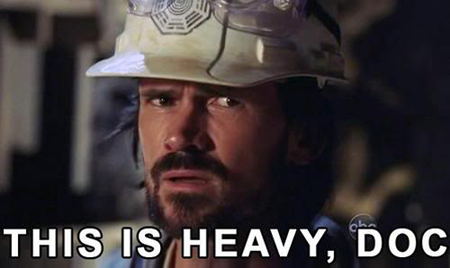Physicist Writes Math Paper To Get Out Of A Traffic Ticket. Beast Mode ++
This is just showing off your gracious gifts, right here. The physicist Dmitri Krioukov got pulled off for running a stop sign and responded by writing a mathematical paper arguing his innocence. Just showing off now, Demmy. Just showing off.
I Heart Chaos:
Dmitri Krioukov of the University of California San Diego wrote a god damn mathematical paper on why he shouldn’t get a traffic ticket.
Faced with a court hearing over allegedly driving through a stop sign, he put together a paper called The Proof of Innocence, which he has since published. The abstract for the paper reads: “A way to fight your traffic tickets. The paper was awarded a special prize of $400 that the author did not have to pay to the state of California.”
Krioukov’s argument is based upon the premise that three coincidences happened at the same time to make the police officer believe that he had seen the physicist run a red light, when, in fact, he hadn’t. He writes: “[In this paper], we show that if a car stops at a stop sign, an observer, e.g., a police officer, located at a certain distance perpendicular to the car trajectory, must have an illusion that the car does not stop, if the following three conditions are satisfied: (1) The observer measures not the linear but angular speed of the car; (2) The car decelerates and subsequently accelerates relatively fast; and (3) There is a short-time obstruction of the observer’s view of the car by an external object, e.g., another car, at the moment when both cars are near the stop sign.”
As Physics Central explains, because the police officer was around 30m from the intersection where the stop sign was situated, “a car approaching the intersection with constant linear velocity will rapidly increase in angular velocity from the police officer’s perspective”.
The physicist even created graphs showing what happens would have happened to his angular velocity if he had either been driving at a constant linear velocity or had made a quick stop then accelerated back to speed, which is what he claims happens (actually, he sneezed, causing him to brake harder than usual). It was during this sneeze stop that another vehicle obscured the police officer’s view of Krioukov’s car, argues the paper.
The conclusion of the paper? It isn’t the police officer’s fault but he/she was wrong as their “perception of reality did not properly reflect reality”. Bet that’s a statement the other officers loved to remind them of.




